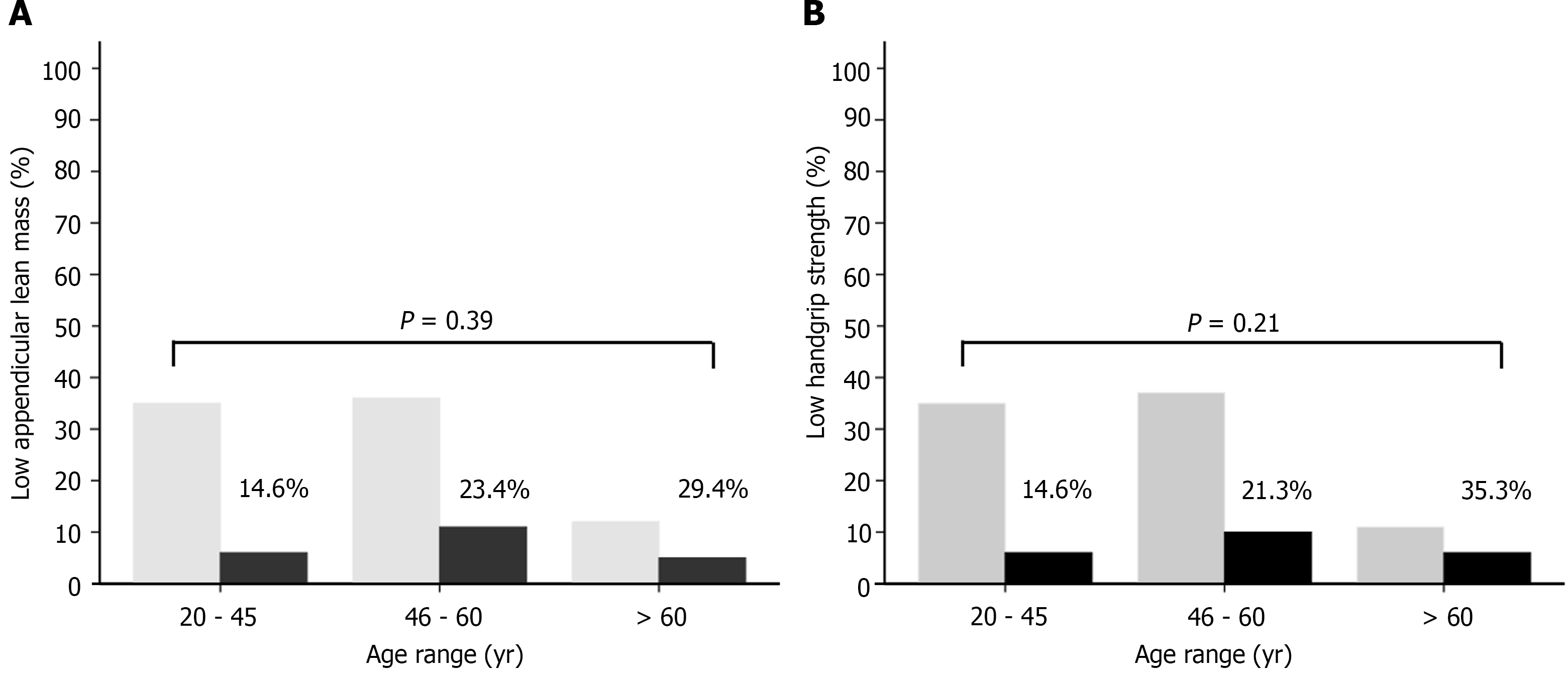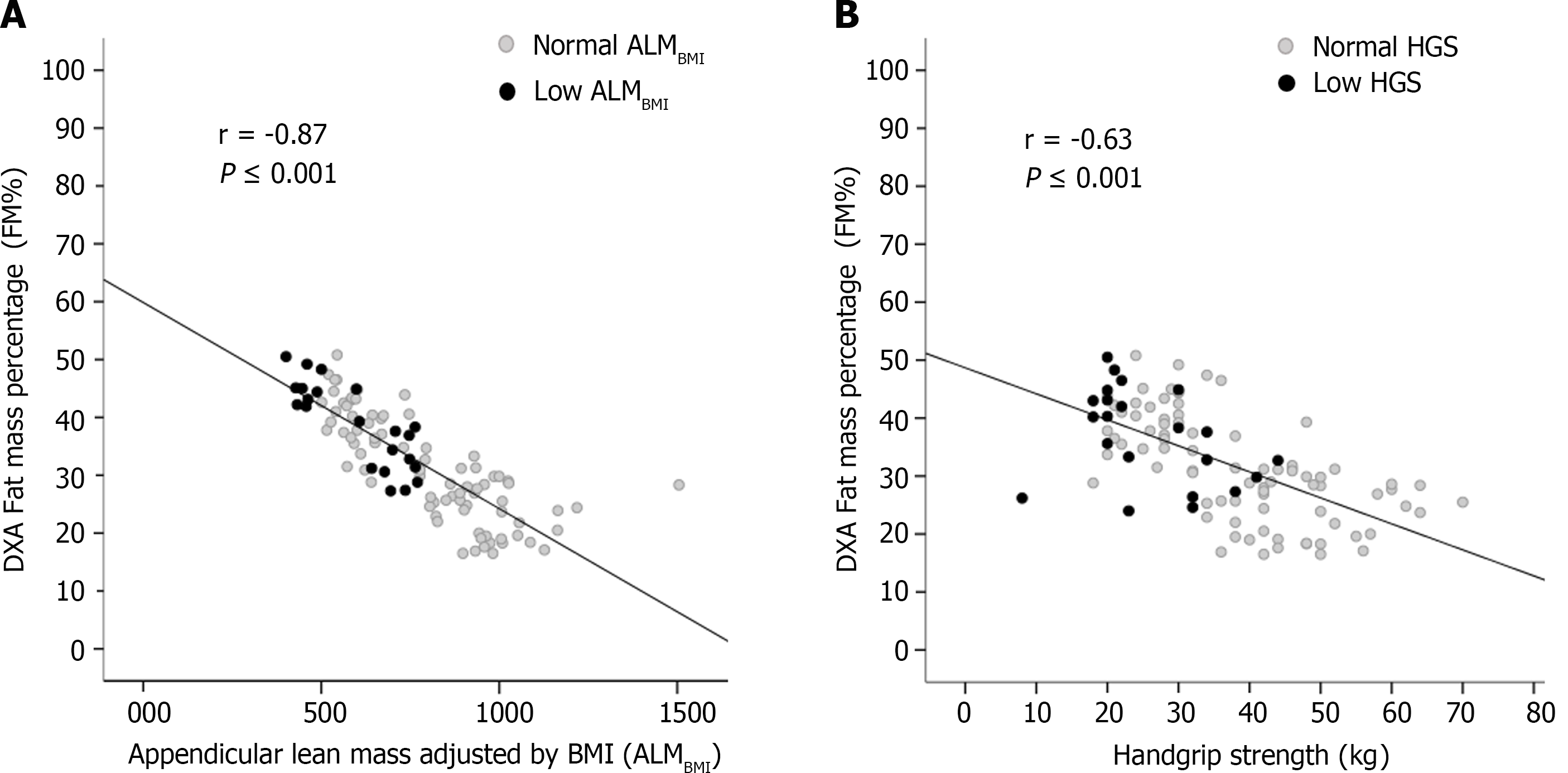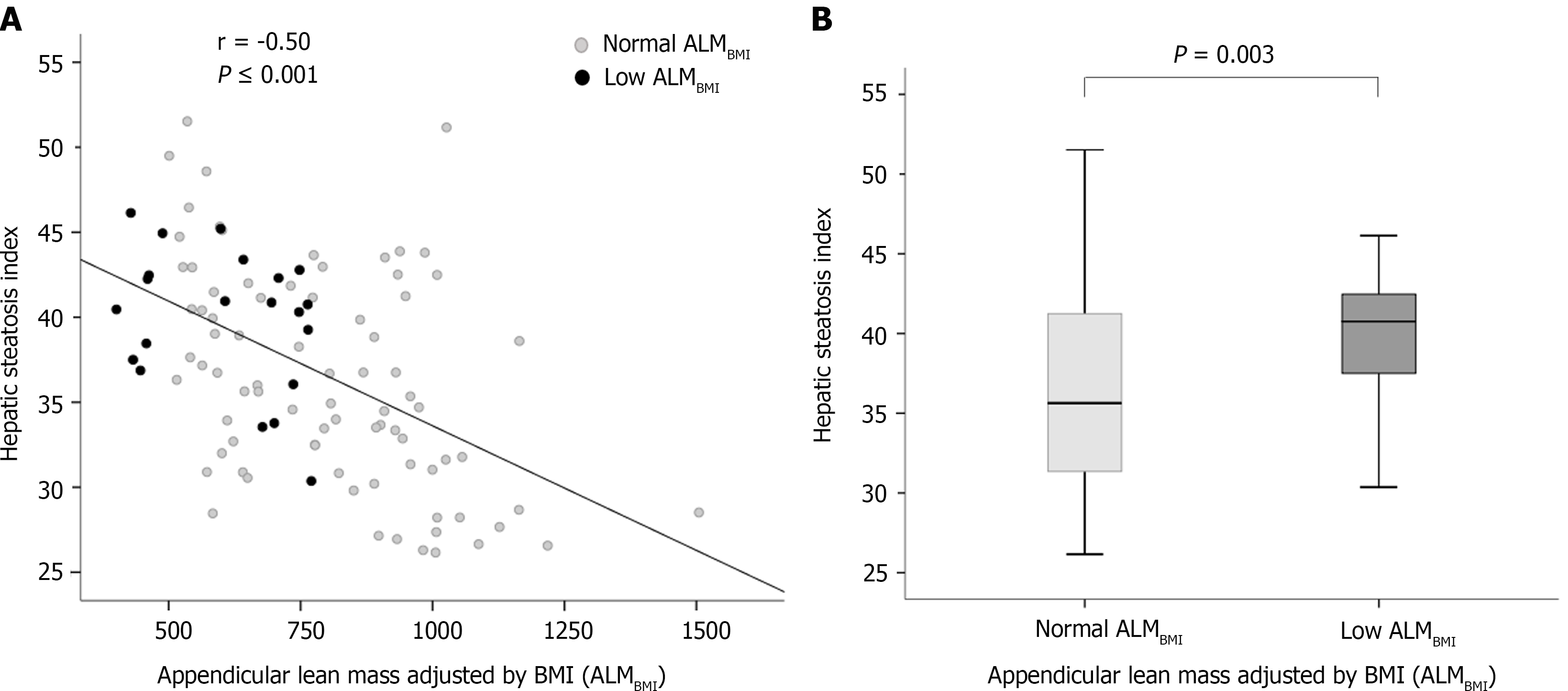Copyright
©The Author(s) 2022.
World J Hepatol. Aug 27, 2022; 14(8): 1652-1666
Published online Aug 27, 2022. doi: 10.4254/wjh.v14.i8.1652
Published online Aug 27, 2022. doi: 10.4254/wjh.v14.i8.1652
Figure 1 Mean percentage of patients chronically infected with hepatitis B virus.
A: With low appendicular lean mass adjusted for body mass index (BMI); B: Low handgrip strength adjusted by BMI according to age range (Student's t-test, P ≤ 0.05).
Figure 2 Correlation between Dual-energy X-ray absorptiometry-derived fat mass percentage and muscle abnormalities.
A: Correlations between fat mass percentage and appendicular lean mass adjusted for body mass index; B: Correlations between fat mass percentage and handgrip strength in patients chronically infected with hepatitis B.
Figure 3 Factors associated with low appendicular lean mass adjusted for body mass index.
A: Correlation between hepatic steatosis index and appendicular lean mass adjusted by body mass index in patients chronically infected with hepatitis B; B: Box plots representing the hepatic steatosis index. The upper and lower limits of the boxes represent the 75th and 25th percentiles, respectively; the horizontal bar across the box indicates the median, and the ends of the vertical lines indicate the minimum and maximum data values (P = 0.003).
- Citation: Santos CML, Brito MD, Castro PASV, Vries TP, Viana NL, Coelho MPP, Malheiro OB, Bering T, Gonzalez MC, Teixeira R, Cambraia RD, Rocha GA, Silva LD. Metabolic-associated fatty liver disease is associated with low muscle mass and strength in patients with chronic hepatitis B. World J Hepatol 2022; 14(8): 1652-1666
- URL: https://www.wjgnet.com/1948-5182/full/v14/i8/1652.htm
- DOI: https://dx.doi.org/10.4254/wjh.v14.i8.1652















